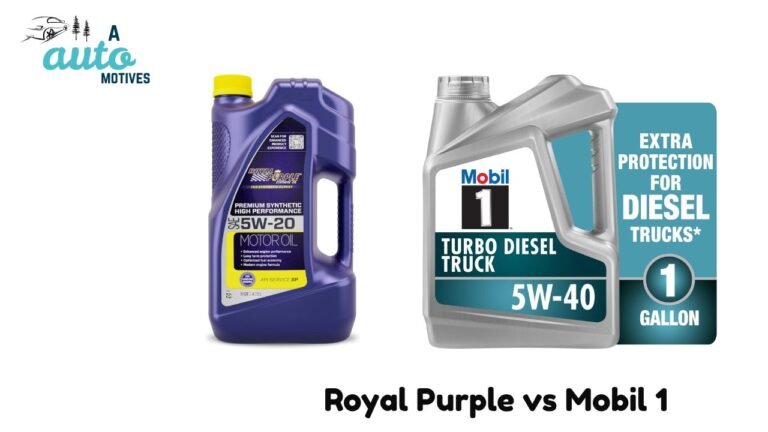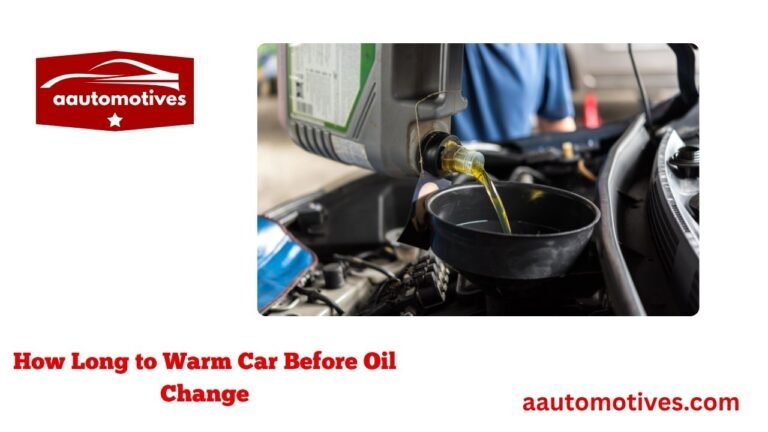Valvoline vs Castrol: My Honest Experience
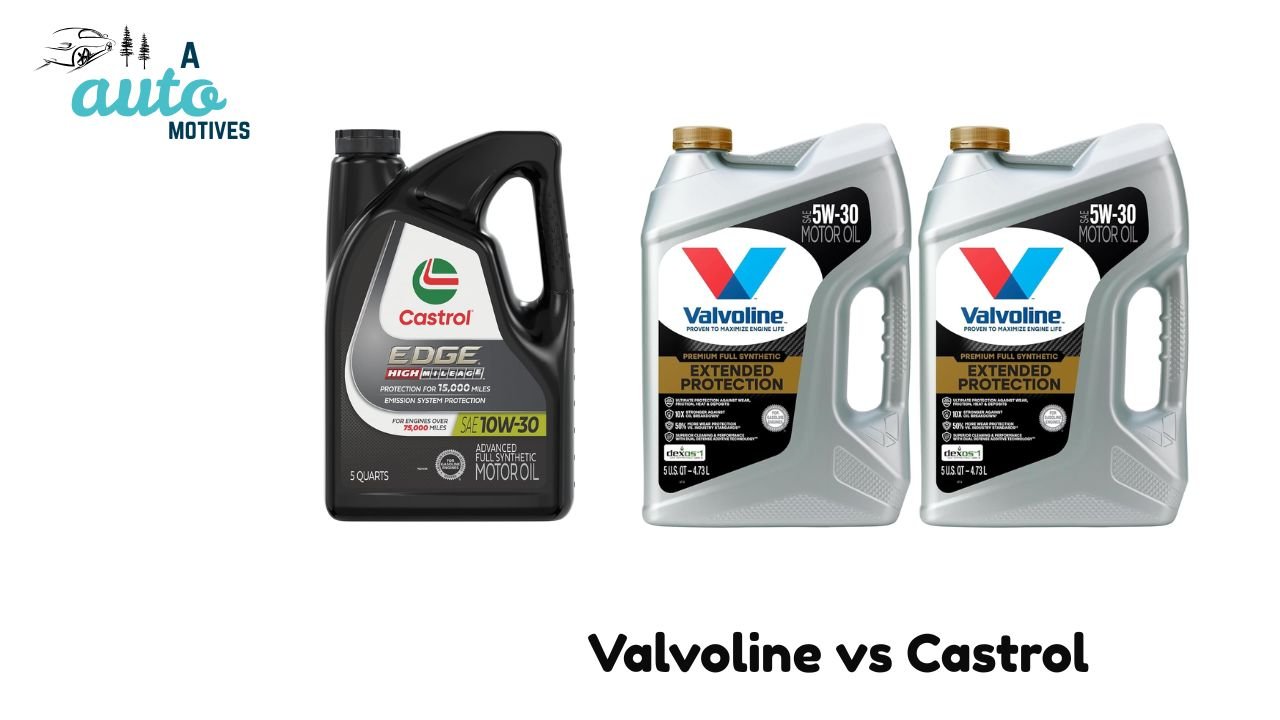
If you’ve ever stood in front of a row of engine oils at your local auto shop, you know the feeling—it’s like staring at two paths in the woods. On one side is Valvoline, with its long history and high-mileage reputation. On the other, Castrol, backed by performance branding and endorsements. Both claim to protect your engine, extend its life, and keep your ride running smooth. But when you’re actually the one behind the wheel, sweating through a desert drive or freezing during a winter morning start, which one really delivers?
I’ve been down that road—literally. Over the years, I’ve poured both Valvoline and Castrol into my cars, tested them through long highway drives, city traffic jams, and weather that felt like it was trying to sabotage my engine. What I found may surprise you. This isn’t about hype, it’s about real-world experience. So, if you’ve been wondering which oil deserves your trust, let’s break it down.
In This Article
- 1 Is Valvoline Good Oil? My Take
- 2 Is Castrol Good Oil? My Experience
- 3 Valvoline vs Castrol: My First-Hand Comparison
- 4 Engine Protection: Which One Keeps Your Motor Happier?
- 5 Longevity: How Long Can Each Go Between Oil Changes?
- 6 Fuel Efficiency Impact
- 7 Extreme Weather Performance
- 8 Cost and Value
- 9 Final Recommendation: Valvoline vs Castrol
- 10 FAQs: Valvoline vs Castrol
- 11 My Closing Thoughts
Is Valvoline Good Oil? My Take
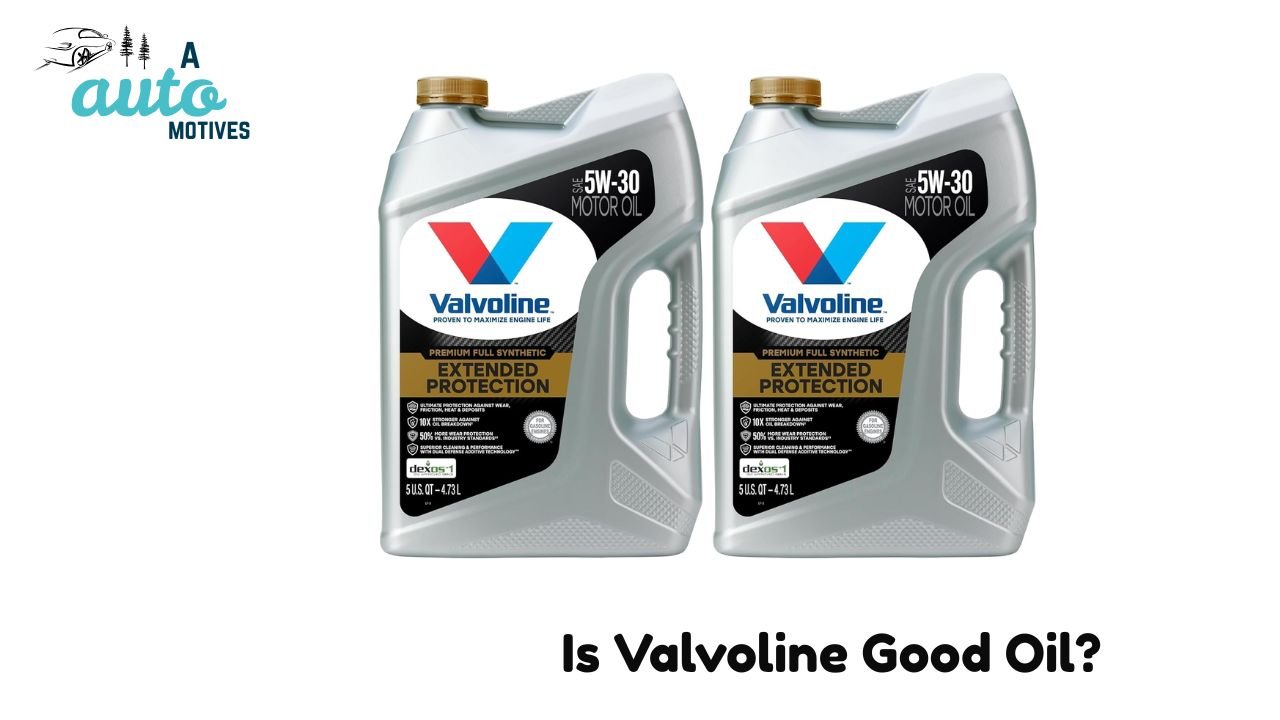
The first time I tried Valvoline, it was during a Midwest winter. You know those mornings when you open the door, and the cold hits you like a wall? That’s when you find out if your oil can handle the pressure. I turned the key, bracing myself for the sluggish rumble I’d felt before with cheaper oils. But instead, the engine fired up like it had been waiting for me. No hesitation, no groaning. Right then, I knew Valvoline wasn’t just another label.
Valvoline has been around for over 150 years, and there’s a reason it’s still on the shelves. Their full synthetic oils—especially the Advanced Full Synthetic 5W-30—are built for today’s demanding engines. It meets API SN Plus and ILSAC GF-6 standards, which basically means it’s engineered to fight wear, handle high temperatures, and work well with turbocharged engines.
When I switched my older sedan (pushing over 120,000 miles) to Valvoline High Mileage, the difference was noticeable. The engine felt smoother, and over time, it ran quieter. That oil has detergents and conditioners designed for older seals and parts. For me, it wasn’t just marketing—I could actually feel the impact in how the car drove.
What I Love About Valvoline
-
Consistency under stress: Long trips in 100+ degree heat, and my engine stayed steady.
-
Cold weather performance: Starts fast even when temps drop below freezing.
-
High-mileage focus: The formula seems to breathe new life into older engines.
-
Easy to find: Whether I’m at Walmart or a local parts store, Valvoline is always stocked.
Where Valvoline Could Improve
-
Not the cheapest: Premium formulas cost more than budget oils.
-
Not built for track cars: Daily drivers and commuters? Perfect. High-performance racers? Not quite.
-
Eco-focus is limited: Some brands push fuel-saving blends more aggressively.
My Verdict on Valvoline
If you’re like most drivers—someone who wants reliability, fewer engine headaches, and solid performance—Valvoline is a safe bet. It’s not flashy, but it delivers where it matters: keeping your engine healthy, mile after mile.
Is Castrol Good Oil? My Experience
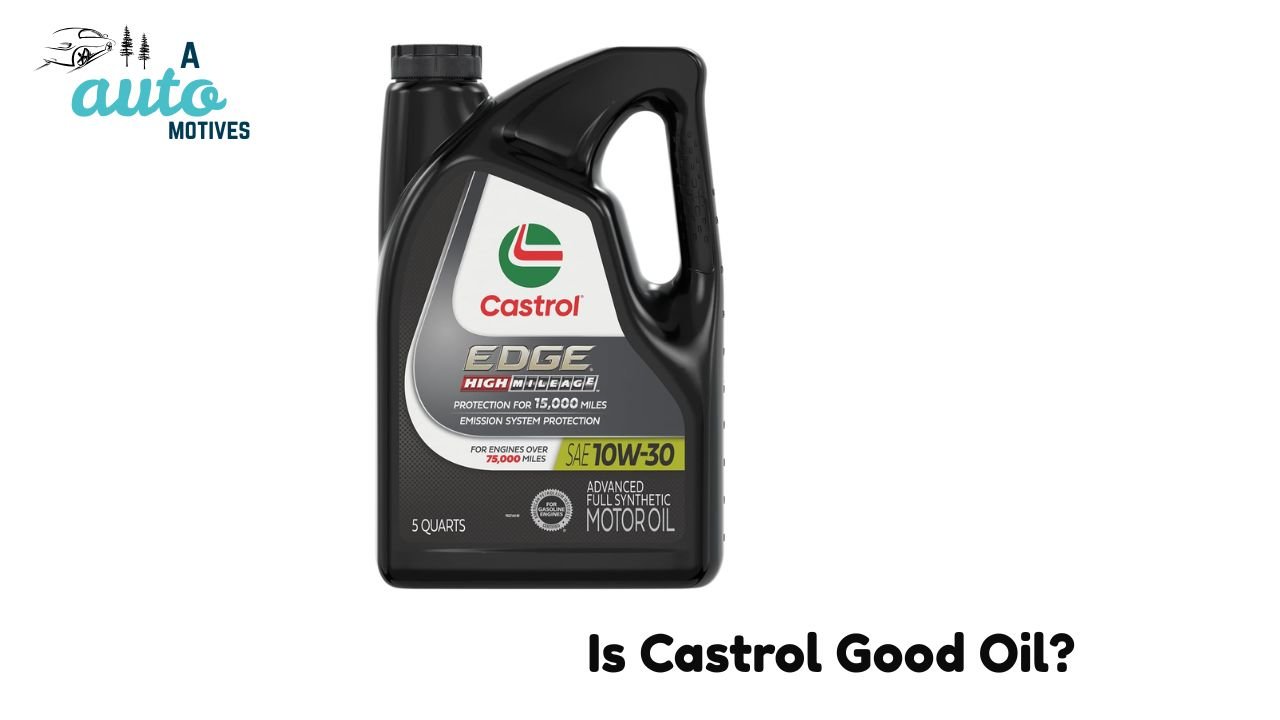
Now let’s talk about Castrol. If Valvoline is like the steady, dependable friend, Castrol is more like the flashy athlete. It’s everywhere—sponsored races, high-performance branding, sleek black bottles that practically scream “power.” But does the reality live up to the image?
In my case, yes—but with some caveats. I first tried Castrol EDGE before a long summer road trip from New York to Florida. I wanted something that could handle endless highway hours, stop-and-go traffic in the Carolinas, and humid southern weather. Castrol did not disappoint. My engine ran smooth the entire way, and even when I pushed the car harder than usual, I didn’t notice any dip in performance.
Castrol’s big claim is its Fluid Titanium Technology, which strengthens the oil film and reduces friction under pressure. I don’t have a lab to test that, but I can say this: during that trip, my engine stayed quieter and felt responsive, even when I was driving for hours straight.
For older cars, I’ve tried Castrol GTX High Mileage, and while it didn’t feel as dramatic as Valvoline’s version, it still kept things clean. The sludge buildup that had worried me didn’t get worse, and the car stayed reliable.
What I Like About Castrol
-
Strong under pressure: EDGE really shines in high-performance or turbocharged engines.
-
Great for winter starts: Lighter blends like 0W-20 flow easily in the cold.
-
Wide range of options: From commuters to performance cars, there’s a formula for nearly everyone.
-
Fuel efficiency boost: Some blends seem to help squeeze out an extra MPG or two.
Where Castrol Could Be Better
-
Pricey top options: EDGE and Extended Performance blends aren’t cheap.
-
Not all oils are equal: The conventional and blend options don’t feel as strong as their synthetics.
-
Thinner feel in older engines: Some high-mileage cars may prefer something a bit heavier.
My Verdict on Castrol
Castrol is perfect for drivers who want performance and protection combined. If you have a turbo engine, do a lot of long drives, or just want peace of mind from a trusted global brand, Castrol has your back. But for high-mileage cars or extreme heat situations, I’ve found Valvoline edges ahead.
Valvoline vs Castrol: My First-Hand Comparison
Now comes the real question—if you had both bottles in front of you, which one should you grab? I’ve tested them in different climates, with different cars, and over thousands of miles. And here’s what I’ve noticed.
Viscosity and Flow
Oil isn’t just about protection—it’s about how well it flows. In freezing temps, Castrol’s lighter blends like 0W-20 perform well, but Valvoline consistently felt quicker to circulate during those brutal Midwest mornings. On the flip side, in scorching summer heat, Valvoline held its thickness better, while Castrol seemed to thin out faster under stress.
My take:
-
Valvoline is more stable in extreme heat.
-
Castrol is great in cold starts but can feel lighter in long hot drives.
Additives and Protection
Valvoline’s formulas come loaded with anti-wear agents and detergents. I’ve noticed my engines stay cleaner for longer stretches between oil changes. Castrol uses solid detergents too, but after a few thousand miles, I could feel my engine getting rougher—like the protective edge was fading.
My take:
-
Valvoline = better long-term cleanliness.
-
Castrol = strong early performance, but doesn’t last quite as long.
Price and Availability
Both brands are easy to find, but depending on the formula, Castrol tends to run a little higher—especially their premium EDGE blends. Valvoline is usually a few bucks cheaper, and in my experience, it stretches longer between oil changes, which means more value overall.
My take:
-
If you’re watching your budget, Valvoline wins.
-
If you’re okay paying extra for performance branding, Castrol works fine.
Engine Protection: Which One Keeps Your Motor Happier?
This is where the rubber meets the road—or, in this case, where the oil meets the metal. After years of driving across different states, one thing has become clear to me: not all oils protect the same way.
With Valvoline, I’ve consistently noticed cleaner engines and smoother idle over long periods. For example, during one 800-mile highway trip, I didn’t experience the usual engine fatigue that often creeps in when oil starts to break down. Even after months of city driving with constant stop-and-go traffic, the oil still looked relatively clean when I checked the dipstick.
With Castrol, the early performance feels strong—it’s almost like your car gets a boost right after the oil change. The problem, though, is that around the 4,000–5,000-mile mark, my engines seemed a bit noisier and rougher. That doesn’t mean Castrol isn’t good—it is—but in my experience, it doesn’t maintain the same level of long-term protection as Valvoline.
Winner for engine protection: Valvoline.
Longevity: How Long Can Each Go Between Oil Changes?
Oil changes aren’t cheap, and let’s be honest—most of us like stretching the interval as long as we safely can. Here’s where I noticed a pretty big difference.
With Valvoline Advanced Full Synthetic, I’ve comfortably gone close to 10,000 miles before needing a change. My car still ran smooth, and the oil didn’t look completely worn out by then. Valvoline has some extended protection formulas that can take you even further if you’re careful.
On the other hand, Castrol EDGE recommends up to 20,000 miles under ideal conditions. That sounds amazing, but in practice, I’ve never dared to push it that far. By the time I reached 7,000–8,000 miles, my engine felt like it wanted fresh oil. Could Castrol last longer in a lab test? Probably. But in real-world driving, I didn’t feel confident going beyond 8,000 miles.
Winner for longevity: Valvoline for reliability, though Castrol claims higher limits on paper.
Fuel Efficiency Impact
Most people don’t think about oil when it comes to gas mileage, but trust me—it matters. The difference isn’t massive, but if you’re commuting daily, those small boosts add up.
Valvoline’s synthetic oils use friction modifiers that reduce drag inside the engine. When I switched from conventional to Valvoline synthetic, I actually saw a small bump in my MPG—maybe half a mile per gallon, but over months of driving, it was noticeable.
Castrol EDGE, with its Fluid Titanium Technology, also aims to improve efficiency. While I did feel my car running smoothly, I didn’t notice the same fuel economy boost I got with Valvoline. It wasn’t worse, just neutral.
Winner for MPG: Valvoline, by a small but real margin.
Extreme Weather Performance
This is where my testing really paid off, because I’ve used both oils in brutal heat and bone-chilling cold.
-
Winter driving: Valvoline always felt like it gave me quicker startups. In sub-zero temps, my car started with less hesitation. Castrol worked too, but it felt slightly thicker at those extremes, and the car sometimes cranked a little longer before roaring to life.
-
Summer heat: I’ve driven through desert highways where the temperature outside was pushing 110°F. In those conditions, Valvoline stayed consistent. Castrol did its job but felt like it thinned out faster after long, hot runs.
Winner for all-season reliability: Valvoline.
Cost and Value
Price isn’t always the deciding factor, but it plays a role. Valvoline is usually a few dollars cheaper per jug than Castrol’s premium lines, and since I get more miles out of it, it feels like I’m saving both on the upfront cost and in the long run.
Castrol isn’t overpriced—it’s right in line with other premium oils—but if you’re comparing head-to-head, Valvoline often edges out on overall value for money.
Final Recommendation: Valvoline vs Castrol
If I had to put my cards on the table, here’s how I’d call it:
-
Pick Valvoline if you want long-lasting protection, cleaner engines, and slightly better fuel efficiency. It’s especially good if you drive in places with wild temperature swings or if your car has higher mileage.
-
Pick Castrol if you have a performance car or a turbocharged engine and you like that initial punch of strong protection right after an oil change. It’s also a good choice if brand reputation and endorsements matter to you.
For me personally? Valvoline wins. Not because Castrol is bad—far from it—but because Valvoline gives me consistency, fewer oil changes, and peace of mind no matter where I’m driving. When I pour Valvoline in, I don’t worry. And that peace of mind is worth more than any marketing promise.
FAQs: Valvoline vs Castrol
Which is better for high-mileage cars, Valvoline or Castrol?
Valvoline High Mileage is my go-to for older cars. It has extra detergents and conditioners that keep engines running cleaner. Castrol GTX High Mileage is solid too, but in my experience, it needs more frequent changes.
Does Valvoline or Castrol improve fuel efficiency more?
Valvoline gives a slight MPG boost thanks to its friction modifiers. Castrol EDGE helps too, but the difference isn’t as noticeable in day-to-day driving.
Which lasts longer, Valvoline or Castrol?
On paper, Castrol’s extended formulas claim up to 20,000 miles. In reality, Valvoline lasts longer in real-world conditions before the engine starts feeling rough.
Is Valvoline or Castrol better for cold weather?
Valvoline wins in freezing temps. It flows faster and makes cold starts easier. Castrol is good, but feels a bit thicker when it’s extremely cold.
Which brand should performance car owners choose?
If you’re running a turbo or performance setup, Castrol EDGE is fantastic. For everyday sedans, SUVs, or high-mileage vehicles, Valvoline is the smarter pick.
My Closing Thoughts
At the end of the day, both Valvoline and Castrol are top-tier oils, and you can’t go horribly wrong with either. They’re like two heavyweight fighters—each with their own strengths. Castrol shines in performance branding and early-stage power, while Valvoline quietly delivers consistency and long-term reliability.
If you want fewer worries about your engine, fewer oil changes, and slightly better value, I’d say go with Valvoline. If you want that instant performance punch and trust in a brand tied to motorsports, Castrol is your guy.
When I look back at my years of driving—from snowy winters in the Midwest to blazing hot summers in Arizona—I keep coming back to Valvoline. And that says something. Because when it comes to protecting my car, I don’t want the flashiest choice—I want the one that gets me home every time.





